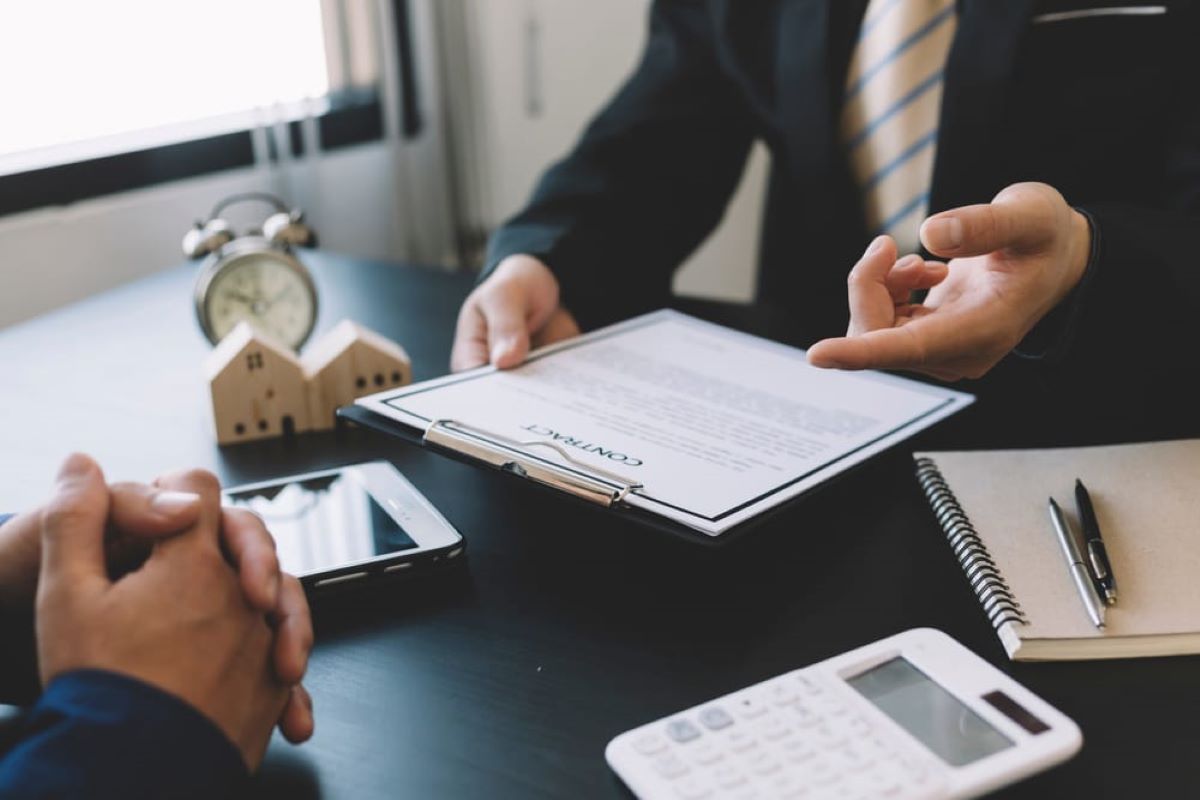Initially, the first step to take if you want to buy a house is to contact a buyer’s agent or a real estate agent. Then, even after getting a property, what are the necessary things you need to do? First, you need to hire a licensed conveyancer to work on how to create legal documents for the property you acquire.

On the other hand, the same step applies to those who want to sell one property or the other. Property law is the same for both buyers and sellers. In other words, once your business or what you want to do is property transfer, you need conveyancing lawyers to make things work.
There’ll be potential issues if your property does not have the backing of a government authority. So, do you know the risks involved in not hiring conveyancing lawyers? And do you want to have at least an idea of what to do during the conveyancing process? That is what this write-up is all about.
But we perceived it would be nice to create a piece of background knowledge. So, we will discuss the meaning of conveyancing; we will talk briefly about the conveyancing process and then take you through some of the things you need to know about conveyancing.
Hence, you have a role to play. Please shun all distractions and follow us closely. Are you ready for the ride? Let’s ride!
What is conveyancing?
Transferring property ownership from one person to another is done through conveyance. Therefore, the conveyancing system has a procedure that must be followed, as is the case with many other aspects of the legal realm.
Melbourne conveyancers put a lot of effort into ensuring the property is legally sound, and the recipient receives what they agreed to without any unpleasant surprises. This is the secret to every successful real estate transaction.

Furthermore, once the buyer and seller exchange signed contracts, the conveyancing procedure is deemed to be finished. The transaction begins when a house offer is approved and completed once the buyer receives the keys.
Then, who needs conveyancing? When buying a property, it is essential to go through the conveyancing process. Also, the conveyancing procedure is suitable for those planning to sell a property. And, of course, everyone can’t carry out the conveyancing process alone.
A conveyancing solicitor must carry out conveyancing. Why? Conveyancing is a complex process. Remember, conveyancing is a branch of law. So, it is expected that property sellers or buyers should consult a conveyancing solicitor (lawyer) to prepare the legal document showing the transfer of ownership.
Also, conveyancing services involve property transactions on the property settlement. That is why you need a qualified lawyer. Property transaction is not an easy task. You will need a bank or financial institution to work with. This procedure also involves creating lodge legal documents.
In South Wales, people are asking if they can own conveyancing. However, nobody will advise you to do that. Hence, we quickly inform you that no one can do the settlement process except a conveyancer.
What will a Conveyancing solicitor do for you?
It is good to have an idea of what conveyancing lawyers will do. Of course, we have said some of it in the introduction. Conveyancing services include carrying out the necessary things that pertain to property transactions. Below are the things conveyancing lawyers will do for you;
Initial documentation and a contract draft
Following the acceptance of the offer, the sellers’ attorney will create the contract, perform any necessary checks, and deliver it to the buyers’ attorney. The terms of the agreement, the contract of sale, and information about the property are all described in the contract.
Inquiries made before a contract by the buyers’ attorney

The seller’s attorney would have delivered the contract package to the purchaser’s attorney. Hence, the buyer’s attorney will review the written contract, title documents, and paperwork and conduct a preliminary investigation of the property and its present owner. Following a comprehensive analysis, the buyers’ solicitor will contact the sellers’ solicitor with any issues.
Putting together surveys and searches
The buyers’ attorney will then organize the survey. The survey will look at the building’s condition and the state of the surrounding land and examine external variables, including drainage systems and upcoming neighborhood developments.
The purchaser’s attorney will then conduct the required local authority searches regarding the property and evaluate the findings. As part of the searches, the local authority will be contacted to inquire about any unresolved matters, such as planning, flood danger, contaminated land, and other environmental concerns. The conveyancing process is not easy. And that is why conveyancing fees are costly in some places like South wales.
Approving the proposed contract
The sellers’ and purchasers’ lawyers will haggle over the draft contract’s provisions. Finally, both parties will sign the contract in preparation for exchange once all searches have been completed and all inquiries have gotten satisfactory responses.
Mortgage proposal
An official mortgage offer from the lender will have been obtained if you purchase a property with a mortgage. The buyer will be invited to sign the mortgage deed after the solicitor has gone over the terms of the mortgage offer. Typically, the lawyer will also handle legal matters on behalf of the lender.
Contracts are traded
Contracts are now exchanged, and the buyers’ solicitor will give the sellers’ solicitor the deposit money. At this point, a deadline will be agreed upon by all parties. Once the contracts have been exchanged between the respective solicitors, the buyer and seller are legally obligated to purchase and sell the property, respectively. The other party will be able to seek damages for breach of contract if either party withdraws.
Post-completion and registration of property transfer
Following completion, the buyer’s attorney will pay any applicable stamp duty and register the new ownership with the Land Registry after receiving the title deeds, other supporting paperwork, and the transfer signed by the seller.
Suppose the property was purchased using a mortgage. In that case, the solicitor will send a copy of the registered title to the lender as proof that their charge has been reported, which will remain in place until the buyer pays off the loan once registration is complete and received by the Land Registry.
On a final note
Dear reader, we hope you see that conveyancing work is not what you can do yourself. However, the above-listed explanations about conveyancing are enough to set you on the right path. Hence, do you have something to say regarding this topic? Please share with us. Thanks for reading!











